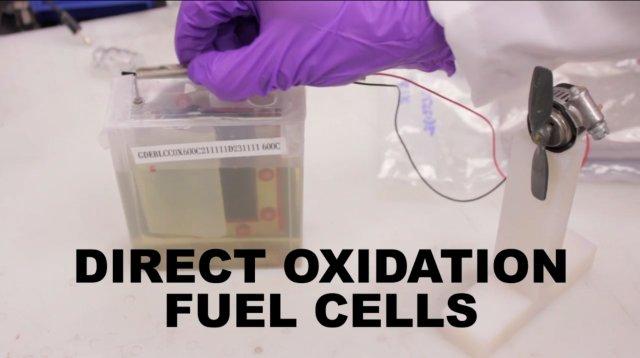FOR IMMEDIATE RELEASE | December 12, 2013
Could the ‘methanol economy’ help power the post-fossil fuel era? A new American Chemical Society video
WASHINGTON, Dec. 12, 2013 — Could a simple molecule known as methanol become a key energy source for the post-fossil fuel era? 1994 Nobel Prize in Chemistry winner George Olah, Ph.D., and Surya Prakash, Ph.D., think so. Their promising alternative fuel concept, known as the “methanol economy,” is the focus of the latest episode of the American Chemical Society’s (ACS’) Bytesize Science series, available at www.youtube.com/BytesizeScience.
“CO2 and hydrogen can be combined to make a very simple molecule called methanol … it could be used in your internal combustion engine as a high-octane fuel. In fact, methanol is the fuel of choice for all race cars,” explains Prakash, professor of chemistry and director of the University of Southern California Loker Hydrocarbon Research Institute. Olah and Prakash recently won a $1 million prize from the Israeli government for their research on the methanol economy.
In the video, Prakash explains why methanol could be a viable option to produce clean, renewable energy. “The beauty is that methanol can be made from recycled carbon dioxide and any kind of energy. … Once we run out of oil and gas, mankind can keep on doing this forever. The CO2 recycling is also carbon-neutral,” says Prakash. In a bonus video also available at www.youtube.com/BytesizeScience, Prakash demonstrates how his team’s “direct oxidation fuel cell” prototype can use methanol to produce electricity.
Subscribe to Bytesize Science on YouTube for more videos that uncover the chemistry in everyday life.
For more entertaining, informative science videos and podcasts from the ACS Office of Public Affairs, view Prized Science, Spellbound, Science Elements and Global Challenges/Chemistry Solutions.
The American Chemical Society is a nonprofit organization chartered by the U.S. Congress. With more than 163,000 members, ACS is the world’s largest scientific society and a global leader in providing access to chemistry-related research through its multiple databases, peer-reviewed journals and scientific conferences. Its main offices are in Washington, D.C., and Columbus, Ohio.
To automatically receive news releases from the American Chemical Society, contact newsroom@acs.org.
###
Media Contact
Michael Bernstein
202-872-6042
m_bernstein@acs.org
Katie Cottingham, Ph.D.
301-775-8455
k_cottingham@acs.org

High-resolution image

